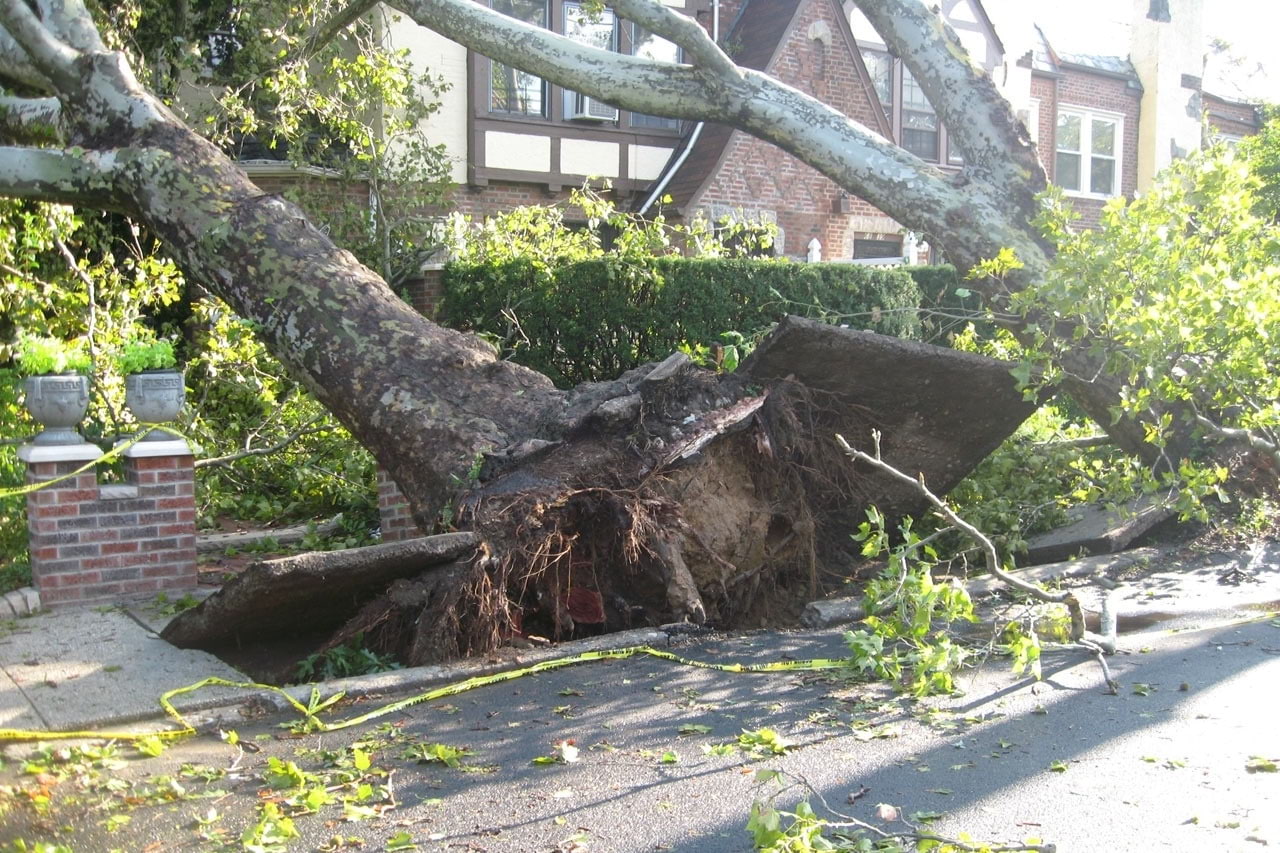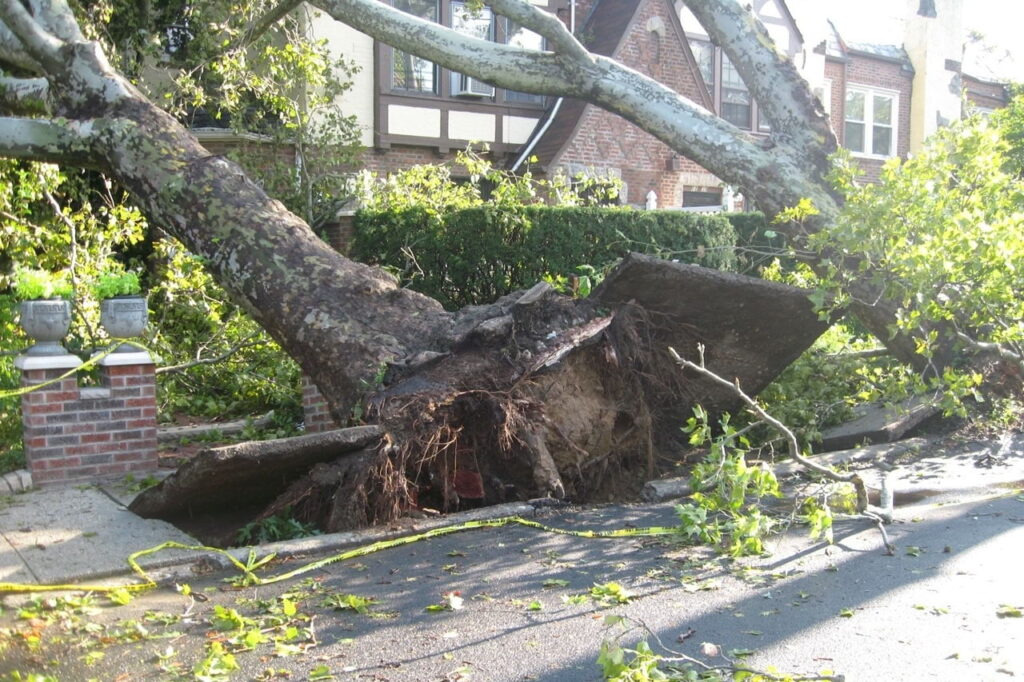So, the worst has happened, and that withered tree looming on the fringes of your property has finally given up the ghost – only to land on your neighbor’s turf!
Now you’re thinking that there’s a hefty price to pay, but fear not; the likelihood is that your neighbor’s home insurance covers the extent of the damage caused. The basics of it are that if your tree has fallen due to an act of nature, such as a storm or lightning strike, their insurance will probably cover payments for repairs, up to a limit specified in their PDS (Personal Disclosure Statement).
In most cases, any damages and problems will be resolved primarily through your neighbor’s insurer, and even if they have to foot some of the bill personally, they’re unlikely to waste time suing you when they could be getting their property repaired instead. Time-consuming court cases are no guarantee of recompense for them, and so will likely be avoided. However, should they choose to take action after all, your own homeowner’s liability insurance may protect you regardless.
But what sort of situation would you reasonably be liable in? Well, if you destroyed the tree on purpose in order to cause damage, you’d have no cover whatsoever, so long as your ill-intentions were proved. More likely than tree-homicide, however, is the case that you might simply have been unaware of the danger presented by your tree, perhaps one old and on the verge of falling, or belonging to a certain species and prone to dropping branches. If so, and the tree falls or part of it does and causes damage, then there are several potential outcomes for you.

For you to be liable, the tree would need to be near the boundary of your property and in a dangerous condition, and you would have to be aware of the potential for damage to your neighbor’s property. In this case, if you are decided to be liable, then your insurance company will likely still cover the costs of clean-up and repairs, though only up to a certain point. Often this boundary will be 5% of your total home insurance, but you should check your own PDS for more information.
Ultimately, a neighbor is unlikely to make a claim against you at all, and even if they do, your homeowner’s insurance should probably be able to handle the legal proceedings. In some cases, the neighbor may have no leg to stand on; for example, some liability policies only cover damage to physical structures rather than the destruction of outdoor furniture, lawns, paving, and so forth. There are exceptions to this too, however – if a fallen branch blocks your neighbor’s driveway, your insurance may need to pay out to remove it, under the basis that it’s an obstruction to the use of their property.
All in all, when a tree falls and causes damage to your neighbor’s property, there’s no need for alarm. The likelihood is that your neighbor’s homeowner’s insurance will cover the damages and allow for an easy resolution. Should things go further however, rest assured that your own insurer will try to fight your case and steer things away from an unwanted pay-out. Should worst come to worst, and a cash settlement be required, you’ll probably still be covered for certain costs. At the end of the day, property damage is minor compared to injury or loss of life, and so with the right homeowner’s insurance, there’s likely nothing for you to worry about in the long run.

